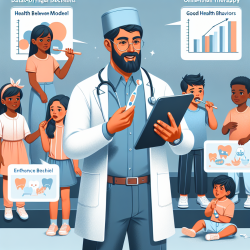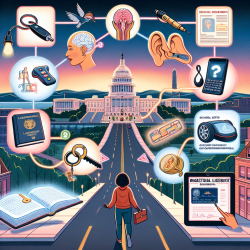Introduction
In the wake of the COVID-19 pandemic, the use of digital devices has surged, leading to increased concerns about their impact on children's mental health. A recent study titled "Smartphone and internet overuse and worsened psychopathologies in children with attention-deficit/hyperactivity disorder during the COVID-19 pandemic" provides critical insights into how excessive screen time exacerbates symptoms in children with ADHD. As practitioners, understanding these findings can help us tailor interventions that mitigate these effects and promote healthier digital habits.
Key Findings from the Study
The research highlights several important outcomes:
- Increased Screen Time: The pandemic has led to a significant rise in smartphone and internet use among children, particularly those with ADHD.
- Worsened Psychopathologies: Excessive use of digital devices is linked to heightened symptoms of anxiety, depression, and behavioral issues in children with ADHD.
- Parental Involvement: The study underscores the role of parental guidance in managing screen time and its associated impacts on mental health.
Implications for Practitioners
As speech-language pathologists and educators, integrating these findings into practice can enhance outcomes for children with ADHD. Here are some strategies to consider:
- Structured Screen Time: Encourage families to establish clear guidelines for screen use, ensuring that children engage in a balanced mix of activities.
- Parental Education: Educate parents about the potential impacts of excessive screen time and provide them with tools to monitor and regulate their children's device usage.
- Incorporate Technology Wisely: Use technology in therapeutic settings to engage children positively, ensuring that digital tools complement rather than dominate their daily routines.
Encouraging Further Research
While this study provides valuable insights, it also opens avenues for further research. Practitioners are encouraged to explore:
- The long-term effects of screen time on children's cognitive and emotional development.
- Effective interventions that leverage technology to support children with ADHD.
- Strategies for promoting digital literacy among children and parents.
Conclusion
The intersection of technology use and mental health in children with ADHD presents both challenges and opportunities. By integrating research findings into practice, we can better support children in navigating the digital world, ensuring that technology serves as a tool for growth rather than a barrier to well-being.
To read the original research paper, please follow this link: Smartphone and internet overuse and worsened psychopathologies in children with attention-deficit/hyperactivity disorder during the COVID-19 pandemic.










